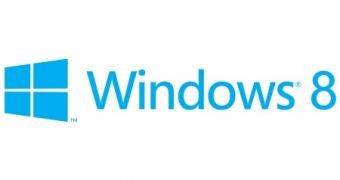Redmond-based software giant Microsoft is getting ready to bring to the market its first Windows flavor to offer support for ARM processors, namely Windows 8.
On devices powered by ARM chips, the platform will be called Windows RT, though it will offer roughly the same experience as the Windows 8 OS loaded on devices running x86 architectures.
OEMs interested in bringing to shelves devices running under Windows 8 need to license the OS from Microsoft in order to do so, and some info on the price these companies pay for the platform has emerged.
According to a recent article on VR-Zone, the software giant is charging a staggering $80-95 U.S. dollars for licensing Windows RT. Most hardware makers need to pay $85 for loading the platform on their devices, the news site notes.
Apparently, more than one vendor confirmed that at the Computex show in Taipei, Taiwan, which should make the info pretty accurate.
However, when compared to the previously rumored $35 licensing fee that Microsoft was expected to charge for its next-generation platform, these numbers appear quite high.
Rival solutions, such as Google’s Android platform, are being offered for free up front, though a series of other licensing fees are involved in their loading on devices.
However, at $85 per device, Windows RT will certainly prove an expensive platform for many users, considering that the details provided by said news site indeed reflect reality.
Windows 8-powered tablet PCs are expected to hit the market later this year, while Windows RT devices might not arrive before the end of the year.
One way or the other, a high licensing fee attached to the Windows platform would certainly raise the cost of devices above the previously suggested $600 selling price.
In the end, Microsoft is expected to make changes to its licensing model, something that it would certainly want to do, if it aims at making Windows 8 tablet PCs as appealing as devices powered by rival operating systems.

 14 DAY TRIAL //
14 DAY TRIAL //